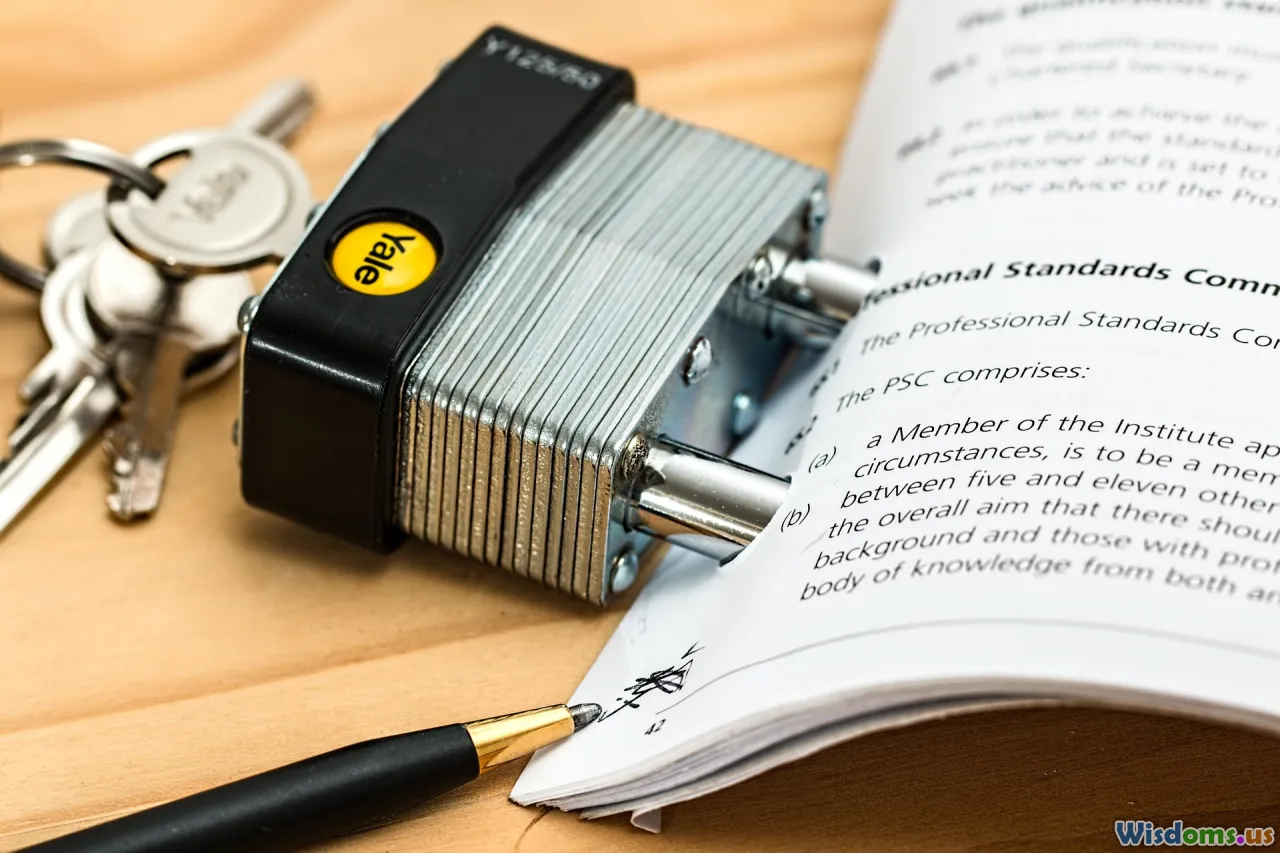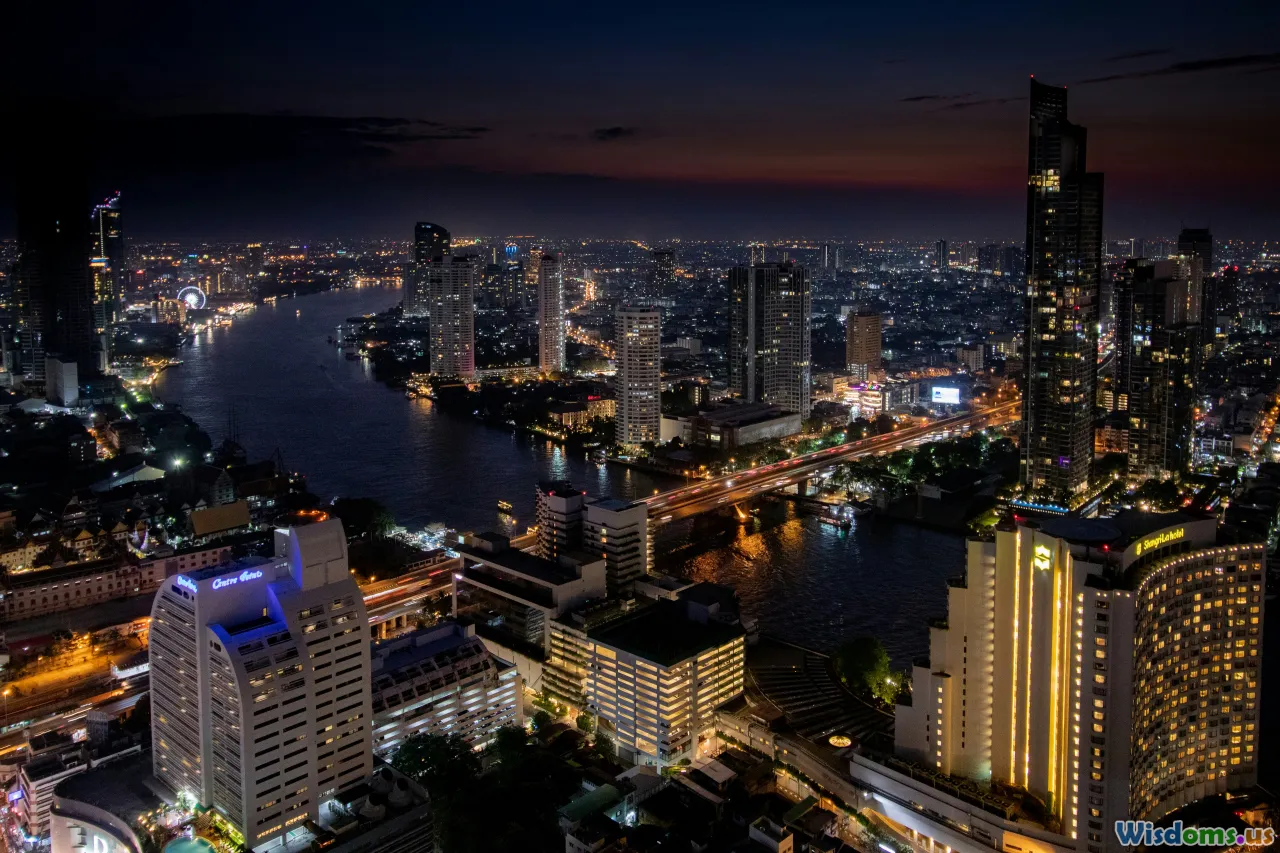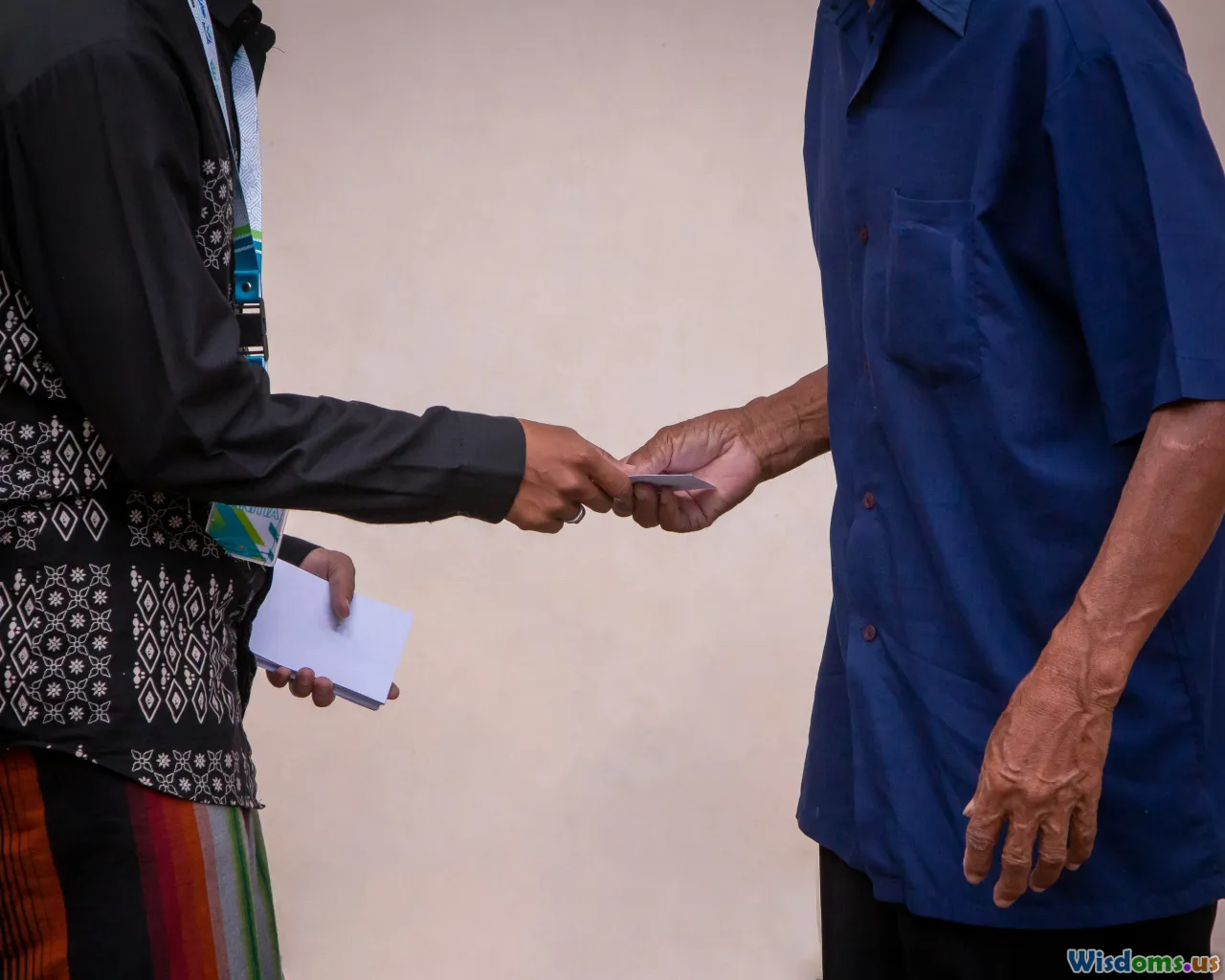
Navigating International Business Laws in Southeast Asia
16 min read A comprehensive guide to understanding and complying with international business laws in Southeast Asia for global entrepreneurs. (0 Reviews)
Navigating International Business Laws in Southeast Asia
Pursuing opportunities in Southeast Asia can unlock remarkable growth, but the region's intricate legal terrain demands informed navigation. Multinationals, SMEs, and entrepreneurs all face the challenge of balancing promising markets against regulatory complexities and cultural differences. Understanding how international business laws operate in this diverse landscape is essential for sustainable success.
The Legal Mosaic of Southeast Asia

Southeast Asia is not a monolith; it's a tapestry of 11 nations, ranging from the highly regulated economies of Singapore and Malaysia to rapidly evolving markets like Vietnam and Myanmar. Each country maintains its own legal systems—some common law, some civil law, some hybrid—which profoundly affects trade, investment, and dispute resolution.
Consider the Association of Southeast Asian Nations (ASEAN), which aims to harmonize certain standards to promote intraregional commerce. However, ASEAN directives often serve as frameworks rather than enforceable regulations, and their application varies dramatically. For example, while Singapore ranks consistently among the easiest places for doing business (World Bank, 2022), regulatory unpredictability in Indonesia or Vietnam may present unexpected hurdles.
Noteworthy examples:
- Foreign Ownership Limits: In Indonesia, some sectors are closed or limited to foreign ownership under successive Negative Investment Lists. By contrast, Thailand’s Foreign Business Act strictly limits non-Thai investment in retail, unless businesses meet unique conditions or utilize local partners.
- Business Formation: Setting up a company in Singapore can be accomplished online within days due to efficient e-government systems, while Cambodia often involves drawn-out documentation and, in some cases, informal facilitation fees.
Common Legal Hurdles Faced by Foreign Businesses

Foreign investors frequently encounter legal obstacles that can jeopardize investments if not properly managed. Here are several recurring points of friction:
1. Licensing and Permits: Gaining appropriate licenses can be a maze. For example, Vietnam’s Law on Investment requires investors to navigate sectoral approvals—telecom, distribution, and finance have special rules—which can change with little notice.
2. Intellectual Property (IP) Insecurity: While ASEAN members are part of international conventions like TRIPS, local enforcement levels and IP literacy remain uneven. Counterfeit goods still circulate widely in markets like Indonesia and the Philippines, so registering trademarks and patents early and locally is non-negotiable.
3. Labor Law Complexity: Countries like Malaysia have rapidly shifting labor laws designed to protect local talent. Managing payroll, social security, work permits, and employment disputes requires not only legal compliance but close attention to cultural expectations—ignoring these can result in costly legal battles or damaged reputation.
Comparative Analysis: Spotlight on Key Jurisdictions

Let's break down international business law features in three prominent markets:
Singapore: The Gateway
- Legal System: Common law; transparent and business-friendly.
- Strengths: Predictability, swift contract enforcement, third-party funding for arbitration (since 2017), robust protection of intellectual property.
- Example: A UK tech company can expect fast business registration, streamlined regulatory compliance, and effective IP protection—all contributing to Singapore’s choice as a regional HQ hub.
Thailand: The Balancer
- Legal System: Civil law with common law influences.
- Foreign Investment Law: The Foreign Business Act restricts certain sectors to Thais. Creative structuring via Thai-majority joint ventures is common, but regulators have cracked down on nominal ownership schemes.
- Example: Japanese manufacturers typically incorporate as joint ventures with trusted Thai partners, leveraging deep-rooted relationships and local networks.
Vietnam: Emerging Potential
- Legal System: Civil law, heavily guided by the Communist Party.
- Strengths and Weaknesses: Booming market, swift reform, but regulatory changes occur rapidly with considerable ambiguity.
- Example: Samsung’s multi-billion-dollar plant approvals required negotiating tax arrangements and labor commitments directly with government ministries, showing the need for political as well as legal navigation.
How to Prepare: Due Diligence and Risk Assessment

The first step is robust due diligence. Adopting an informed and methodical approach protects against hidden liabilities and costly oversights:
- Corporate Structure Verification: Confirm the legitimacy of local partners and scrutinize beneficial ownership structures.
- Regulatory Review: Study both national and subnational regulations. For instance, Indonesia applies distinct rules in autonomous regions such as Aceh or Papua.
- Contracts and Local Law: Insist on bilingual contracts, with the local language version prevailing where mandated (e.g., Laos, Thailand).
- Industry-Specific Permits: Research sector regulations by consulting with specialist local law firms. A global e-commerce firm expanding to Malaysia must comply with the Communications and Multimedia Act, among others.
Tip: Utilize proprietary databases such as LexisNexis or local commercial chambers to augment your research. According to PwC (2023), foreign SMEs using specialized risk consultants reported up to a 30% reduction in avoidable compliance issues.
Strategies for Cross-Border Dispute Resolution

Disputes are inevitable. How they're managed can either limit damage or escalate costs.
1. Arbitration: Singapore and Kuala Lumpur boast globally respected arbitration centers (SIAC and AIAC, respectively). Many cross-border contracts specify arbitration over litigation due to neutrality, expertise, and efficiency.
- Example: When an American construction giant faced a breach of contract with a Malaysian subcontractor, settling at AIAC helped preserve commercial relations and avoid politicized court proceedings.
2. Mediation and Conciliation: Mediation is culturally harmonious and increasingly institutionalized, aligning with Southeast Asia’s preference for non-confrontational resolutions.
- Tip: The Singapore Convention on Mediation (in force since 2020) enables settlement agreements to be easily enforced across signatory countries, providing parties with certainty and flexibility.
3. Local Litigation: Resorting to domestic courts is often a last measure given risks of partiality or delays, especially in less-developed legal environments. However, Singapore’s judiciary is the gold standard, often trusted for neutral, transparent decisions.
Compliance Essentials: Anti-Corruption and Regulatory Adherence

Bribery and facilitation payments remain pressing issues in some jurisdictions, affecting everything from licensing to contract awards. The passing of stricter anti-bribery laws has narrowed permissible conduct:
- Malaysia’s MACC Act (Amendment 2018): Corporate liability offenses mean companies face prosecution if an employee or associate offers a bribe, even unknowingly.
- Indonesia’s KPK Enforcement: The Corruption Eradication Commission intensively pursues high-profile cases, often implicating domestic and multinational firms.
Advisory: Implement robust compliance programs, regular trainings, and third-party vetting into all Southeast Asian operations. The US FCPA and the UK Bribery Act both have extraterritorial effect—ignoring anti-corruption obligations in Southeast Asia can trigger prosecution abroad.
Intellectual Property: Protecting Ideas in a Dynamic Region

IP risk looms large, particularly for brands, tech companies, and manufacturers.
- Early Registration: File trademarks, copyrights, and patents in each target country before any public launch. For example, international coffee chains expanding to Vietnam encountered copycat stores using unregistered trademarks, making enforcement challenging.
- Enforcement Channels: Increasingly, ASEAN governments are launching crackdowns on counterfeits—Thailand’s IP & IT Court and Indonesia’s Directorate General of Intellectual Property (DGIP) offer redress. But informal enforcement (seizures, business shutdowns during raids) is also routine.
- Regional Initiatives: The ASEAN IP Portal (2013) eases searches, but does not replace national registration.
Insight: Even when a business registers its IP in one member state, legal protection does not extend region-wide; multinational holders must strategize filings for each locale.
Navigating Emerging Laws and Digital Regulations

Rapid economic digitalization comes with new rules—from data sovereignty to online licensing.
1. Data Privacy: Singapore’s Personal Data Protection Act (PDPA) is the most developed, while Thailand's PDPA and Indonesia’s Personal Data Protection Law represent significant regulatory shifts. Cross-border data flows can be hampered by storage or reporting obligations.
- Example: Cloud storage providers must ensure compliance with local data-hosting rules. A US SaaS firm selling to Thailand must ensure local servers or tightly controlled international data transfers.
2. E-commerce and Fintech: Malaysia’s robust frameworks encourage fintech growth, whereas Vietnam maintains strict know-your-customer (KYC) requirements and foreign investment caps for payments startups.
- Tip: Localize website terms and insist on updated consumer protection policies and refund systems, especially for products serving consumers directly.
Cultural Intelligence: Legal Compliance Beyond the Letter

Legal compliance is not only about what’s written in statute books. Successful navigation requires cultural awareness and adaptive negotiation styles.
- Relationship-Oriented Cultures: In Indonesia, personal relationships often precede formal contract discussions. Rushing negotiations or ignoring social protocols can alarm or offend local partners, potentially derailing deals.
- Face-Saving Negotiation: In Vietnam and Thailand, causing public embarrassment or disagreement can permanently fracture business relationships. Discreet, consensus-driven talks tend to yield the best outcomes.
Practical Advice: Hire local advisors with deep networks. Multinationals often second trusted staff—known as “liaison officers”—embedded with in-country teams to manage both formal legal issues and informal barriers.
Building a Regional Compliance Structure: Scalable Steps for Multinational Success

For companies expanding across borders, scalable compliance mechanisms are essential. Key actions include:
- Regional Legal Hubs: Concentrate legal, compliance, and risk teams in a central base (often Singapore or Kuala Lumpur) that supports satellite offices with best practices and updated guidance.
- Uniform Policies, Tailored Application: Use common compliance infrastructure—anti-bribery, IP, HR—but adapt for each country’s unique requirements.
- Continual Monitoring: Establish regular legal audits, stakeholder surveys, and utilize international and in-country counsel.
According to KPMG’s Southeast Asia Compliance Outlook (2023), firms implementing integrated legal risk management observed a 40% quicker resolution of regulatory issues, and fewer enforcement actions by local authorities.
Charting a Confident Course

The promise of Southeast Asia's high-growth markets comes with legal nuance and the need for careful, continual learning. Foreign businesses who invest in understanding diverse rules—going beyond compliance checklists and factoring in local relationships—position themselves for reduced risk, smooth dealmaking, and lasting success. As regional frameworks continue to mature and digital transformation reshapes the legal landscape, those who proactively engage local counsel, adapt to evolving practices, and build bridges of trust will reap outsized rewards.
For every international expansion in this dynamic region, due diligence is not just a beginning but a mindset—one that ensures your business both survives and thrives amidst Southeast Asia’s legal complexity and opportunity.
Rate the Post
User Reviews
Other posts in Global Business & International Trade
Popular Posts

















